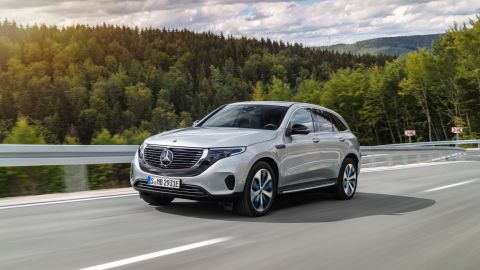Tesla and Mercedes-Benz trying to offset impact of reduced German EV subsidies
The German government's startling decision to put an end to its electric vehicle (EV) subsidy program on December 31, 2023, has unquestionably sent shockwaves through the automotive industry in one of Europe's biggest car markets. Responding to the drastic change in the government’s EV policy, American electric car pioneer Tesla and German luxury brand Mercedes-Benz have announced plans to compensate for the subsidy loss. Both automotive brands have pledged to cover the full price of the incentive for prospective buyers in Germany. Some other automakers are also joining the initiative.
The German government's subsidy program, which is known as the environmental bonus, provides customers with €6,750 (equivalent to $7,390) for the purchase of a new EV. The government contributed up to €4,500 (approx. $4,900), while the manufacturer covers €2,250 (approx. $2,450). The shocking decision to end the subsidy program due to budget cuts was revealed over the weekend, with the government refusing to accept new applications from 17th of December.
Tesla took to social media platform “Twitter” to announce its commitment, stating that it would pay for the entire €6,750 EV subsidy. Announcing its commitment, the EV giant stated, “Tesla will compensate for the termination of the government EV subsidy in Germany for new Model 3/Y orders (starting 18 Dec for vehicles delivered by 31 Dec).”
The American EV giant aims to increase its sales in the final quarter, with a hope to achieve its ambitious target of selling 1.8 million vehicles this year. Tesla had already offered German customers attractive 0.99 per cent loans for orders placed by 18th of December and delivered by the end of this year.
Following suit, Mercedes-Benz issued a press release, assuring customers in its home market that it will subsidize orders until the end of December, covering the manufacturer's share, in an approach similar to Tesla. It also stated that for orders placed from 1st of January, Mercedes-Benz would pay the manufacturer’s share based on the subsidy amount originally planned for the next year. Some other automakers like Volkswagen and Stellantis are also stepping in to ease the impact of the subsidy cut.
The dynamic EV subsidy program of the German government, a catalyst since 2016, has injected nearly €10 billion in subsidies, propelling adoption of nearly 2.1 million EVs. Hence, it comes as no surprise that the government’s recent unexpected decision to discontinue this influential program has created waves throughout the automotive landscape.
